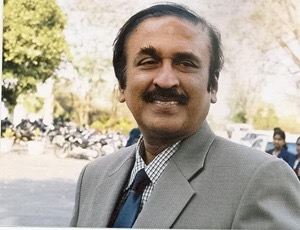Guest column: Dr N Prabhudev
Reasons are many, abstract theories!
Result- death by a cardiac catastrophe!
Smoking, being inactive, obesity, poor nutrition, and too much alcohol
BENGALURU, Aug. 9: In a heartbreaking turn of events, Spandana Vijay Raghavendra, spouse of renowned Kannada actor Vijaya Raghavendra, has tragically passed away in Bangkok due to a cardiac arrest, a sudden heart attack, secondary covid heart disease, Drastic weight loss process!!
She married actor Vijay Raghavendra in 2007. They were a celebrated pair in the Sandalwood industry, setting a high standard for romance and understanding. she was also an impeccable dancer. They were on the verge of marking their 16th wedding anniversary in a mere 19 days. Sadly, fate had other plans as Spandana passed away. Puneeth Rajkumar, a celebrated Kannada actor and Vijay’s cousin, also lost his life to a catastrophic cardiac arrest in October 2021.
2019 conference of the American College of Cardiology, spotlights an alarming trend: a rising incidence of heart attacks in younger adults. 20% of the heart attacks are under 40. Having a heart attack in your 20s or early 30s is as common. This age group had an increase in heart attack incidence of 2% every year from 2000 – 2016.
The risk of heart disease increases by 2 to 4 times for people who smoke. According to a study published in the American Journal of Medical Epidemiology, “Those who consume Water frequently have a lower risk of death from coronary artery disease. Drinking before going to bed is even more important since it helps improve sleep. People who drink less water risk a host of health problems.
• High blood pressure is a major risk factor for heart disease. It is called the silent killer
• Cholesterol can build up in the walls of the arteries, including those of the heart. This leads to narrowing of the arteries and can decrease the blood flow to the heart, brain, kidneys. Low -density lipoprotein – cholesterol is considered to be “bad” – This causes plaque buildup in your arteries that leads to heart attacks!
• People with Obesity. diabetes and hypertension -The risk of heart disease, death and stroke are more than twice the number seen in those without these NCDs.
COVID-19 can lead to heart problems among people who never had heart issues before. But if you have cardiovascular disease, you face the greatest risk of heart problems. If you have heart disease risk factors, such as high blood pressure, diabetes, obesity or high cholesterol, you also face a higher risk of serious complications- “myocardial injury.” COVID-19 can impact your heart while you’re sick but also after the virus has left your body. Estimates range from 7% to 40%. Myocardial injury is more common among people who need care in the ICU.
Arrhythmia. Inflammation can interrupt your heart’s electrical signals. As a result, your heart can lose its normal rhythm. If you already have arrhythmia, the cytokine storm can make it worse.
Blood clots. The lining of your blood vessels can become inflamed. When this happens, you face a greater risk of blood clots, heart attack or stroke.
Myocarditis. This is an inflammation of your heart muscle. People with COVID-19 face a higher risk of myocarditis compared with those who aren’t sick.
new evidence has revealed that anyone infected with COVID is at higher risk for heart issues—including clots, inflammation, and arrhythmias—a risk that persists even in relatively healthy people long after the illness has passed.
Exercise- how much is too much for the heart?
Your maximum heart rate at exercise should not exceed the number- 220 minus you age. If you are 50yrs. max heart rate should be 170 per minute. Moderate intensity – 50%to70% of your max heart rate is safe in majority of cases. 75% to 85% of your max hear rate is not safe for those who are not trained and to many who are indulging in high intensity Exercise.
Aerobic exercise trains the heart to become more efficient. Exercise is protective against metabolic syndrome, lowers blood pressure, works against blood clotting, and lowers stress, all of which contribute to improved cardiovascular health. As for duration, 30 minutes a day is the sweet spot for nearly maximal health protection. Physical inactivity may be the greatest threat to health in the 21st century.
If some exercise is good, more must be better – No, Not really! Too much exercise can be harmful, and may cause cardiac hypertrophy or even sudden cardiac death.
Cardiovascular disease remains the number one killer worldwide. Despite undisputed evidence of what causes heart disease, these numbers have not changed.
Information and knowledge is only valuable if it is acted upon and implemented. We must change our habits if we wish to change the course of our own health.
• All four bad habits is 349%
• People with all four unhealthy behaviors are physically 12 years older than their chronological ages
• Those with just one of the bad habits are 85% more likely to die early. How early- it depends






More Stories
Life is imperfect, incomplete, and impermanent
The happiest years of one’s life!
Money Talks! Love listens and cares!